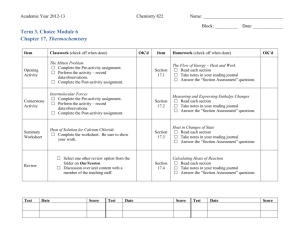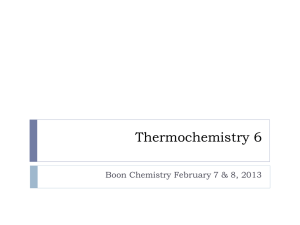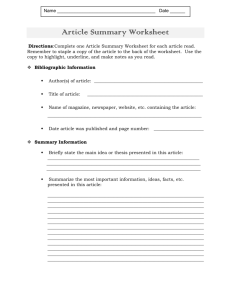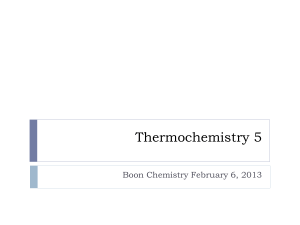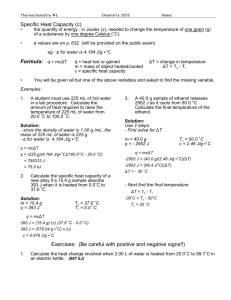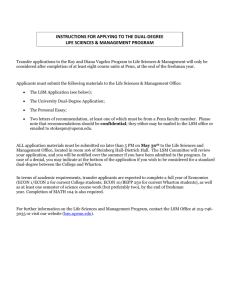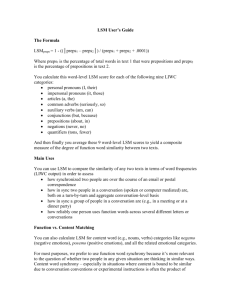Heat Calculations, Extra Exercises
advertisement
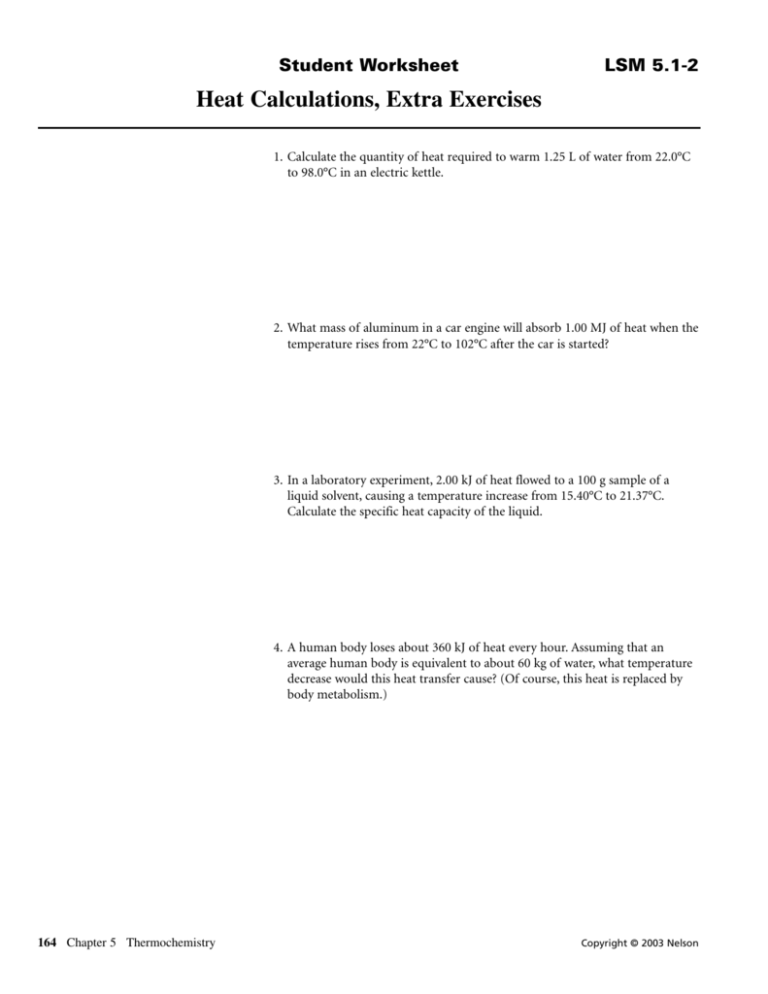
Student Worksheet LSM 5.1-2 Heat Calculations, Extra Exercises 1. Calculate the quantity of heat required to warm 1.25 L of water from 22.0°C to 98.0°C in an electric kettle. 2. What mass of aluminum in a car engine will absorb 1.00 MJ of heat when the temperature rises from 22°C to 102°C after the car is started? 3. In a laboratory experiment, 2.00 kJ of heat flowed to a 100 g sample of a liquid solvent, causing a temperature increase from 15.40°C to 21.37°C. Calculate the specific heat capacity of the liquid. 4. A human body loses about 360 kJ of heat every hour. Assuming that an average human body is equivalent to about 60 kg of water, what temperature decrease would this heat transfer cause? (Of course, this heat is replaced by body metabolism.) 164 Chapter 5 Thermochemistry Copyright © 2003 Nelson Student Worksheet Solutions LSM 5.1-3 Heat Calculations, Extra Exercises, Solution 1. Calculate the quantity of heat required to warm 1.25 L of water from 22.0°C to 98.0°C in an electric kettle. q mc∆T J q 1250 g 4.19 (98.0 – 22.0)°C g°C q 398 kJ 2. What mass of aluminum in a car engine will absorb 1.00 MJ of heat when the temperature rises from 22°C to 102°C after the car is started? q mc∆t J 1.00 MJ m 0.900 (102 – 22)°C g°C m 14 kg 3. In a laboratory experiment, 2.00 kJ of heat flowed to a 100 g sample of a liquid solvent, causing a temperature increase from 15.40°C to 21.37°C. Calculate the specific heat capacity of the liquid. q mc∆t 2.00 MJ 100 g c (21.37 – 15.40)°C c 3.35 J/(g•°C) 4. A human body loses about 360 kJ of heat every hour. Assuming that an average human body is equivalent to about 60 kg of water, what temperature decrease would this heat transfer cause? (Of course, this heat is replaced by body metabolism.) q mc∆t J 360 kJ 60 kg 4.19 ∆t g°C ∆t 1.4°C Copyright © 2003 Nelson Chapter 5 Thermochemistry 165
